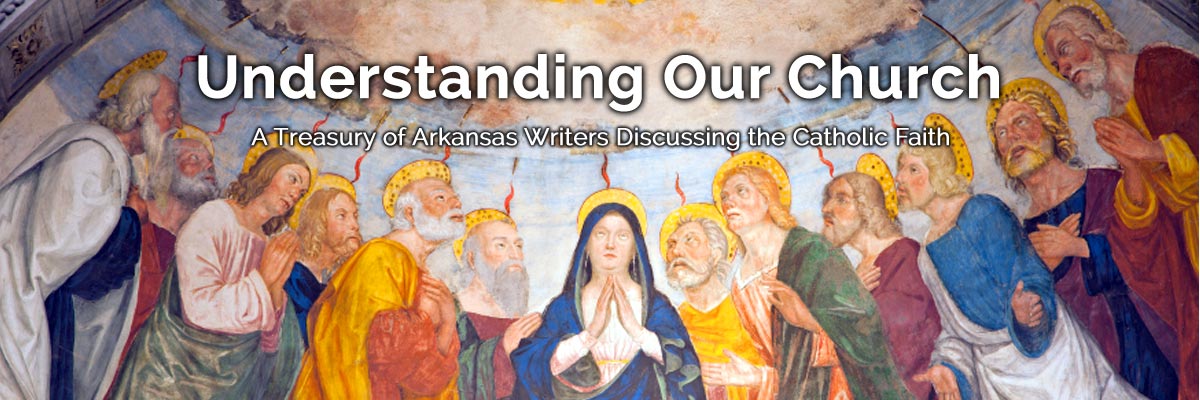Official Website of the
Catholic Diocese of Little Rock
Death will die: God calling us to heaven means we will be transformed
Published: February 1, 2018
By Edward C. Dodge
Catholic High School for Boys
I’ve been thinking a lot recently about death.
I suppose that sounds morbid, but such mediations result from studying English poetry. “Death, be not proud,” wrote the poet John Donne, “though some have called thee / Mighty and dreadful, for thou art not so.”
Donne, born of a Catholic family but later an Anglican priest, was well associated with death. His family was persecuted under Queen Elizabeth, who executed his uncle, a Jesuit priest. Donne and his wife suffered together the loss of several children, until Donne’s wife also died.
The Catechism of the Catholic Church teaches that death is God’s calling us to himself, and that while it is the natural end to human life, it is not an end to Christian life: it is a transformation. This is because Christ has transformed death, and the Christian who dies in Christ will therefore also live in him.
Indeed, the way Donne addresses death as “thou” suggests a familiarity with death — a familiarity that strips away death’s power to frighten: “For those thou thinkest thou dost overthrow / Die not, poor Death, nor canst thou kill me!”
Today, we often fear death as an inevitable and sorrowful failure of medical science. However, great Christian writers over the centuries, like Donne, understood death to be simply a servant of either God or Satan. John the Evangelist wrote that death will be cast into the Lake of Fire at the end of time.
John Milton, in “Paradise Lost,” reveals death to be the gatekeeper of hell, seduced by Satan after the demon’s fall. And St. Francis of Assisi embraced "Sister Death" with hope, recognizing, like Donne, that death is our “soul’s delivery” unto God.
My students enjoy reading the Medieval play “Everyman,” in which the playwright depicts death as God’s servant, to be sent to whomever God wills. Everyman’s encounter with death makes him think more seriously about his life.
“Didst thou think thy life belonged to thee?” asks Death, and to Everyman’s yea, Death responds: “Nay, it was but lent thee.” Everyman talks with "Fellowship," "Goods" (possessions), "Beauty" and "Strength," and he learns that they all will fail him.
Even "Knowledge" cannot go through death with Everyman, although she can walk him to the grave. Only Good Deeds, strengthened by Everyman’s faith in God’s mercy through his confession of sins, can die with him to vouch that he used well the life God had lent him. (Matthew 25:14-30)
The Catechism of the Catholic Church also teaches that death is God’s calling us to himself, and that while it is the natural end to human life, it is not an end to Christian life: it is a transformation. This is because Christ has transformed death, and the Christian who dies in Christ will therefore also live in him.
We today might say we hope to die quietly, even suddenly, in our sleep, but Christians of old have prayed “from a sudden and unforeseen death, O Lord, spare us.” Like St. Paul, we should look forward to death as our entry into eternal life. (catechism, no. 1010-1014).
St. John XXIII began each day by mediating on the four last things — death, judgment, heaven and hell — in order to orient his decision making each day with an eye on his ultimate goal: loving and serving God in this world that he might live with him in the next.
In “Meditation 17,” Donne wrote: “Ask not for whom the (funeral) bell tolls; it tolls for thee.” Each death stands as a reminder to prepare for our own with hope, not fear.
With hope because we believe death is not the end. We believe in the resurrection, when the dead shall rise and death shall end. This is why Donne said death couldn’t kill him: “One short sleep past, we wake eternally / And death shall be no more. Death, thou shalt die.”




